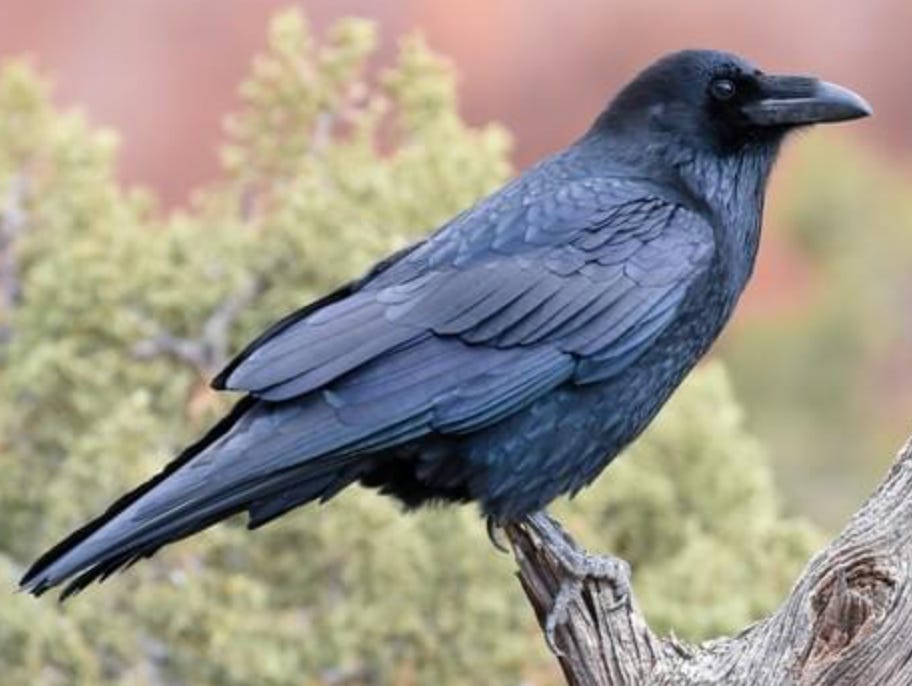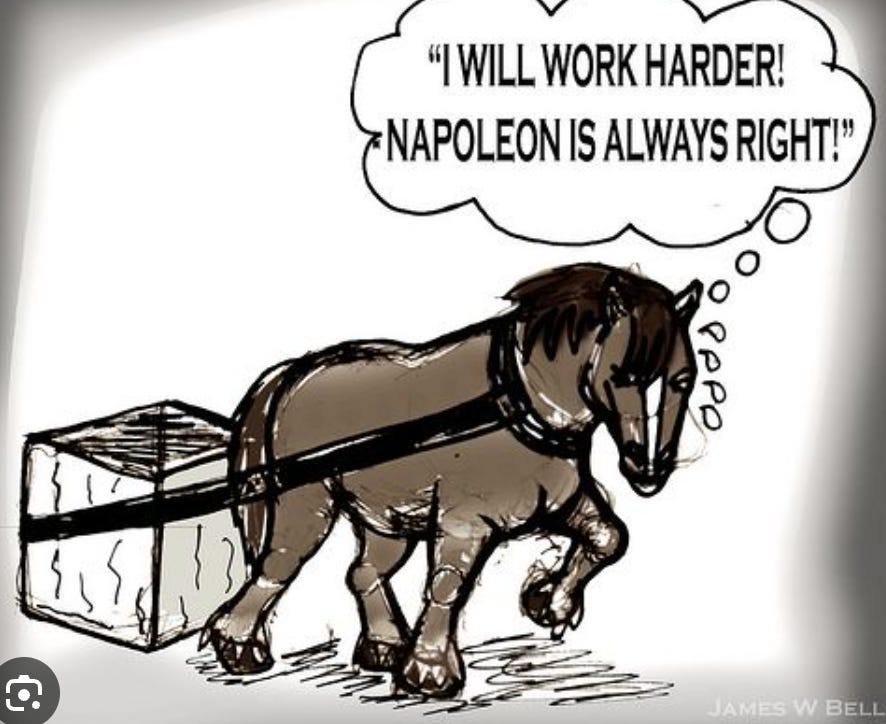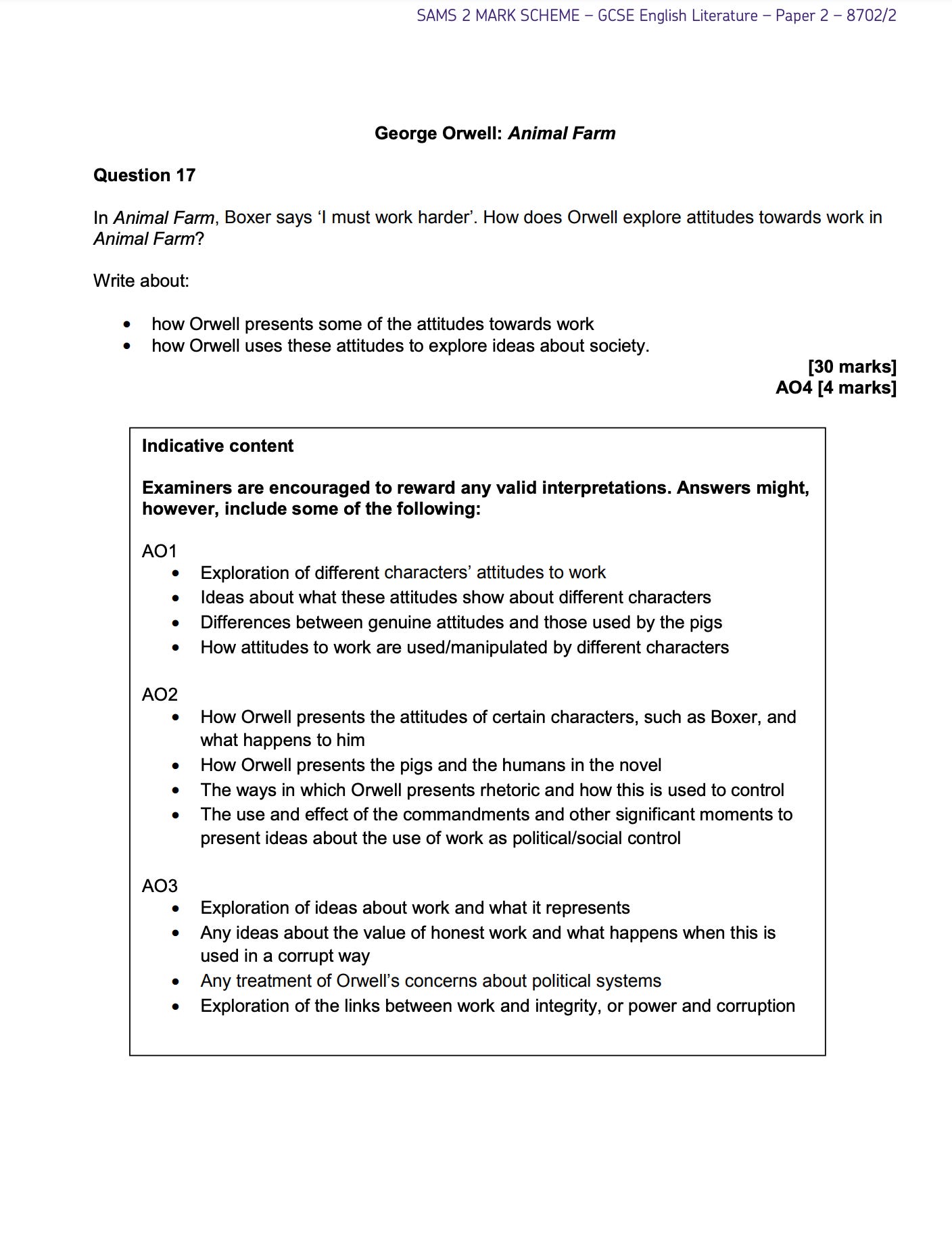Chapter 9
“Napoleon ended his speech with a reminder of Boxer’s two favourite maxims, ‘I will work harder’ and ‘Comrade Napoleon is always right’ - maxims, he said, which every animal would do well to adopt as his own.”
Moses Returns
“The Soviet Union was the first state to have as an ideological objective the elimination of religion. Toward that end, the Communist regime confiscated church property, ridiculed religion, harassed believers, and propagated atheism in the schools. Actions toward particular religions, however, were determined by State interests, and most organized religions were never outlawed.
The main target of the anti-religious campaign in the 1920s and 1930s was the Russian Orthodox Church, which had the largest number of faithful. Nearly all of its clergy, and many of its believers, were shot or sent to labor camps. Theological schools were closed, and church publications were prohibited. By 1939 only about 500 of over 50,000 churches remained open.
After Nazi Germany's attack on the Soviet Union in 1941, Joseph Stalin revived the Russian Orthodox Church to intensify patriotic support for the war effort. By 1957 about 22,000 Russian Orthodox churches had become active.”
Library of Congress: internal workings of the Soviet Union
Boxer
Boxer is a significant character in George Orwell's "Animal Farm." He is a loyal and hardworking horse known for his immense strength and dedication to the cause of Animalism. Here are some key aspects of Boxer's character:
Strength and Hard Work:
Boxer is one of the strongest animals on the farm, and he contributes significantly to the construction of the windmill. His motto, "I will work harder," reflects his incredible work ethic and dedication to the ideals of Animalism.
Loyalty to Napoleon:
Boxer is intensely loyal to Napoleon, the pig who takes control of the farm. Despite the worsening conditions on the farm and the betrayal of the original ideals of Animalism, Boxer remains devoted to Napoleon- even when Napoleon’s dogs attack him.
“Napoleon is always right.”
Limited Intelligence:
While Boxer is a symbol of strength and diligence, he is not portrayed as highly intelligent. His mottos and unwavering loyalty suggest a lack of critical thinking, making him vulnerable to manipulation.
“I do not understand it. I would not have believed that such things could happen on or farm. It must be due to some fault in ourselves. The solution, as I see it, is to work harder.”
One of the criticisms of Orwell’s Animal Farm is that he seemed to label workers like Boxer as being of low intelligence and not able to think for themselves. Is this a valid criticism if applied to people? Or is it the case that Orwell was saying that people who are terrorised and subject to continual propaganda completely lose their ability to think for themselves?
Tragic Fate:
Boxer's loyalty leads to a tragic end. As he becomes injured and less useful, Napoleon sells him to a glue factory for profit, betraying Boxer's years of service. This event symbolizes the exploitation of the working class by those in power.
Symbolism:
Boxer represents the proletariat or the working class in society. His blind loyalty and exploitation mirror the struggles of the working class under oppressive regimes.
Influence on the Narrative:
Boxer's character contributes to the overall critique of totalitarianism and the corruption of revolutionary ideals. His fate is a poignant commentary on the betrayal of the working class by those in power.
In summary, Boxer is a tragic character whose unwavering loyalty and hard work are exploited for the benefit of those in power. His character serves as a powerful symbol of the working class and the dangers of blind allegiance in the face of political corruption.
The Theme of Work on Animal Farm
This exam question and guidance mark scheme is from Paper 2 of the AQA GCSE English Literature in 2015.
Activity: have a serious think about work on Animal Farm. Is work an important theme running through the story? Can you think of different examples of work on the farm? What is work? How do the attitudes of Boxer, the pigs, Mollie and the other animals differ to work? Are they happy doing their work? What is their motivation? Which animals have recreation time? Will any animals be allowed to retire from work? Are the animals working for their own benefit or for the benefit of someone or something else?
Write down a list of points or make a mind map.
Post some of your key thoughts in the comments below. Thank you.




